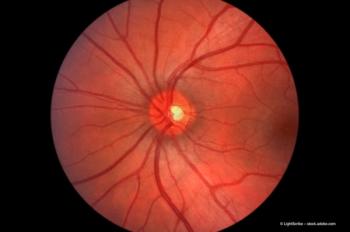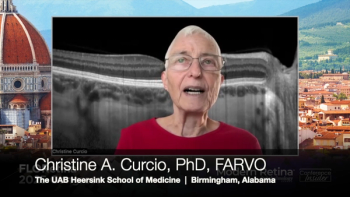
Triamcinolone monotherapy loses favor as potential AMD treatment
In the new treatment era for exudative age-related macular degeneration (AMD) heralded by the availability of locally administered anti-VEGF drugs, intravitreal monotherapy with triamcinolone injection may no longer be considered as a current therapy for this neovascular condition, said Jost Jonas, MD, at the World Ophthalmology Congress.
In the new treatment era for exudative age-related macular degeneration (AMD) heralded by the availability of locally administered anti-VEGF drugs, intravitreal monotherapy with triamcinolone injection may no longer be considered as a current therapy for this neovascular condition, said Jost Jonas, MD, at the World Ophthalmology Congress.
Dr. Jonas of the University of Heidelberg, Germany, reviewed the results of studies investigating the efficacy and safety of intravitreal triamcinolone that demonstrated the treatment resulted in benefits in some patients, but also afforded no positive effect for an appreciable proportion, while being associated with high rates of adverse events.
Intraocular pressure (IOP) elevation, occurring in about 40% of eyes, and IOP has risen to frighteningly high levels in some cases. In addition, about 15% to 20% of the older population treated required cataract surgery within 1 year of receiving intravitreal triamcinolone and while serious complications, such as infectious endophthalmitis, have been rare, they did occur and the cumulative rate would be expected to increase with repeated injections.
"Intravitreal triamcinolone may still be a treatment option for a number of intraocular edemas, proliferative, and neovascular diseases, but exudative AMD probably no longer belongs on that list. For AMD, intravitreal triamcinolone may still be used in combination with verteporfin (Visudyne) photodynamic therapy (PDT). However, it remains to be seen whether intravitreal triamcinolone plus PDT may be replaced by anti-VEGF therapy plus PDT or triple therapy with intravitreal triamcinolone plus anti-VEGF therapy plus PDT," said Dr. Jonas.
Newsletter
Get the essential updates shaping the future of pharma manufacturing and compliance—subscribe today to Pharmaceutical Technology and never miss a breakthrough.




























